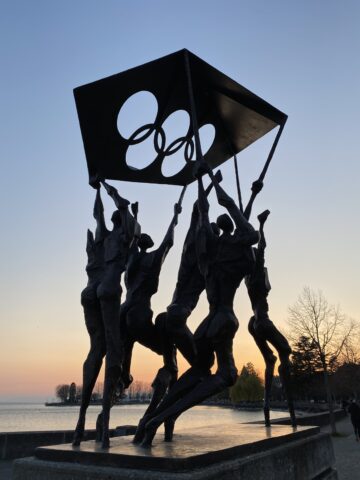No violation of ne bis in idem in a two-phase procedure initiated according to the UEFA Regulations
4A_462/2019, Judgment of July 29, 2020, KS Skënderbeu v. UEFA, Motion to set aside the CAS award of July 12, 2019 (CAS 2018/A/5734)
The dispute arose between the European confederation of football (UEFA) and one of its members, the Albanian professional football club Skenderbeu (the Club). Based on UEFA’s betting fraud detection system, UEFA had initially denied the Club’s admission to the 2016/2017 edition of the Champions League. In a CAS Award rendered in 2016 (CAS 2016/A/4650), the Panel upheld the decision of the UEFA Appeals Body.
Following the CAS Award, UEFA inspectors opened new proceedings and, based on reports from the betting detection system, UEFA issued a disciplinary sanction on the Club, suspending the latter from all European competitions for the next ten seasons and imposing a fine of EUR 1’000’000. The CAS upheld the appeal and the Club filed a motion to set aside the CAS award before the SFT.
The principal plea raised by the Club before the SFT related to the violation of the principle of ne bis in idem, which prohibits the prosecution of the same person twice for the same criminal act. The SFT reiterated its skepticism as to the application of a criminal law principle to disciplinary proceedings but left the question open, since the CAS itself had applied the principle in its arbitral proceedings. In view of the SFT’s repeated skepticism on this issue, CAS panels should set stricter standards as to the applicability of this principle in disciplinary proceedings, reserving thus its application to harsh sanctions that may be assimilated to criminal santions.
In any event, the SFT confirmed the CAS’ view that the two-phase procedure provided for in the UEFA Regulations does not contravene the ne bis in idem principle. In the SFT’s view, the first phase is of an administrative nature, while the second phase is of a disciplinary procedure, which is expressly stated in UEFA’s Regulations. The two proceedings are different from each other in that the first merely exclude the club from a sporting competition in order to preserve the integrity of sport, while the second – disciplinary – proceedings aim at sanctioning the same club for its conduct.
The various pleas of violation of the right to be heard were equally dismissed by the SFT. In particular, the Club’s allegation that the Panel proceeded to an “unforeseeable analogy” between the betting detection system and the tax detection software was a simple comparison in order to clarify the functioning of the betting detection system and, as such, did not even fall within the scope of the « effet de surprise », which relates to the unforeseeable application of a legal standard or a consideration whose relevance could not have been guessed by the parties.

Another interesting argument raised by the Club related to the plea of violation of the criminal law principle of nulla poena sine lege as alleged part of the substantive public policy of Art. 190 (2) (e) PILA. Similar to the principle ne bis in idem, the SFT repeated its skepticism as to the application of these criminal law principles to disciplinary sanctions imposed by private law associations and eventually dismissed the argument as unfounded: the interpretation of the relevant disciplinary regulations by the CAS Panel was in accordance with the principle, to the extent that sports bodies do not have the same means of investigation as state authorities to shed full light on the clubs’ conduct. The Panel’s assessment that the « errors » committed by the Club’s players were also correctly linked to the Club, which should be held responsible in accordance with the disciplinary regulations..





